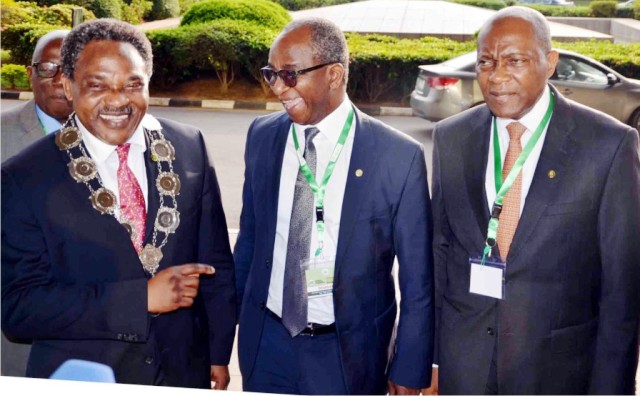Business
WTO Receives New Ratifications For Trade Pact

The World Trade Organization (WTO) said a major milestone for the global trading system had been reached as it received four more ratification for the Trade Facilitation Agreement (TFA) on February 22.
On its website, WTO said it had obtained the two-thirds acceptance of the agreement from its 164 members needed to bring the TFA into force.
It stated that Rwanda, Oman, Chad and Jordan submitted their instruments of acceptance to WTO Director-General, Roberto Azevêdo, bringing the total number of ratification over the required threshold of 110.
“The agreement seeks to expedite the movement, release and clearance of goods across borders.
“It also launches a new phase for trade facilitation reforms all over the world and creates a significant boost for commerce and the multilateral trading system as a whole.’’
According to a 2015 study, carried out by WTO economists, full implementation of the TFA is forecast to slash members’ trade costs by an average of 14.3 per cent.
“The TFA is likely to reduce the time needed to import goods by over a day and a half and to export goods by almost two days.
“So this will represent a reduction of 47 per cent and 91 per cent respectively over the current average,’’ it stated.
It stated that implementing the TFA was also expected to help new firms export for the first time.
Thev study also added that once the TFA was fully implemented, developing countries were predicted to increase the number of new products exported by as much as 20 per cent.
Least developed countries would see an increase of up to 35 per cent, according to the WTO study.
It stated that Azevêdo welcomed the TFA’s entry into force, noting that the agreement represented a landmark for trade reform.
“This is fantastic news for at least two reasons. First, it shows members’ commitment to the multilateral trading system and that they are following through on the promises made in Bali.
“Second, it means we can now start implementing the Agreement, helping to cut trade costs around the world.
“It also means we can kick start technical assistance work to help poorer countries with implementation.
“This would boost global trade by up to 1 trillion dollars each year, with the biggest gains being felt in the poorest countries.
“The impact will be bigger than the elimination of all existing tariffs around the world.
“But this is not the end of the road. The real work is just beginning. This is the biggest reform of global trade in a generation.
“It can make a big difference for growth and development around the world. Now, working together, we have the responsibility to implement the agreement to make those benefits a reality,’’ it quoted Azevêdo.
Nigeria ratified the TFA on Jan. 20, when it deposited the instrument of acceptance with Azevedo in Davos, on the sidelines of the World Economic Forum (WEF).
Mr Okechukwu Enelamah, Minister of Industry, Trade and Investment, said it was a major milestone in the multilateral trading system and “ties into our Ease of Doing Business agenda”.
Enelamah said Nigeria would like to see a WTO that was more supportive of domestic policy reforms in developing countries.
Transport
Automated Points Concession : FAAN Workers Gave 72hrs To Revise Decisions In PH

Transport
FAAN Announces Pick-Up Points for Go-Cashless Cards

Business
Fidelity Bank To Empower Women With Sustainable Entrepreneurship Skills, HAP2.0
-

 News5 days ago
News5 days agoAmend Constitution To Accommodate State Police, Tinubu Tells Senators
-

 Politics5 days ago
Politics5 days agoSenate Urges Tinubu To Sack CAC Boss
-

 News5 days ago
News5 days agoDisu Takes Over As New IGP …Declares Total War On Corruption, Impunity
-
Politics2 days ago
2027: NIGERIANS FAULT INEC ON DIGITAL MEMBERSHIP REGISTER DIRECTIVE
-

 Environment2 days ago
Environment2 days agoLAWMA Director Says Sweeping Reforms Have Improved Waste Collection
-

 Featured5 days ago
Featured5 days agoFubara Reads Riot Act To New SSG, CoS …Warns Against Unauthorized Meetings
-
Rivers5 days ago
Etche Clan Urges Govt On Chieftaincy Recognition
-
News5 days ago
25 Killed In Adamawa Jihadist Attacks

